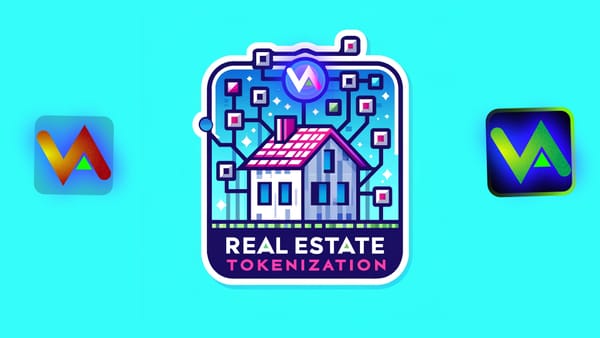
Real Estate Tokenization
Real estate tokenization has been gaining traction as a groundbreaking approach to property ownership and investment. By leveraging blockchain technology, real estate tokenization has the potential to significantly impact the traditional real estate market, offering a range of benefits for investors, property owners, and the industry as a whole. In this article, we explore the concept of real estate tokenization, its benefits, challenges, and considerations, and its potential to reshape the global real estate market.
What is Real Estate Tokenization?
Real estate tokenization is the process of converting ownership rights in a property into digital tokens on a blockchain. These tokens represent a fractional share of the underlying real estate asset, allowing investors to purchase and trade them on digital platforms. By tokenizing real estate, the ownership of a property can be divided into smaller, more affordable units, making it accessible to a wider pool of investors.
The tokenization process typically involves creating a digital representation of the property on a blockchain platform, such as Ethereum, and issuing tokens that represent ownership shares. These tokens can then be bought, sold, and traded on secondary markets, providing liquidity to an otherwise illiquid asset class.
For example, a $1 million apartment building could be tokenized into 1,000 tokens, each representing a 0.1% ownership stake in the property. Investors can then purchase these tokens, allowing them to own a fraction of the building and potentially earn returns through rental income and property appreciation.
What is Tokenization?
Tokenization is the process of converting rights to real world assets into digital tokens on a blockchain. These tokens represent ownership of the underlying assets and can be bought, sold, and traded on digital platforms.
Tokenization enables fractional ownership of assets, allowing them to be divided into smaller, more affordable units that can be owned by a broader pool of investors. This unlocks liquidity in previously illiquid assets like real estate, fine art, and collectibles. By reducing barriers to entry, tokenization essentially democratizes access to investment opportunities.
Benefits of Real Estate Tokenization
Increased Liquidity
One of the primary advantages of real estate tokenization is the enhanced liquidity it provides. Traditional real estate investments often involve lengthy and complex processes, making it difficult for investors to quickly buy or sell their holdings. Tokenization allows for the creation of a secondary market where investors can easily trade their tokens, enabling faster and more efficient transactions.
Lower Barriers to Entry
Real estate tokenization democratizes property ownership by lowering the barriers to entry for investors. With the ability to purchase fractional shares of a property, investors can participate in the real estate market with smaller amounts of capital. This opens up opportunities for a broader range of individuals to invest in real estate, diversifying their portfolios and potentially earning returns that were previously inaccessible.
Improved Transparency and Security
Blockchain technology, which underpins real estate tokenization, offers enhanced transparency and security compared to traditional real estate transactions. The decentralized nature of blockchain ensures that all transactions are recorded on an immutable ledger, providing a tamper-proof record of ownership and transfers. This increased transparency reduces the risk of fraud and disputes, instilling greater confidence in the investment process.
Streamlined Investment Process
Tokenization streamlines the real estate investment process by automating many of the manual tasks involved in traditional transactions. Smart contracts, which are self-executing contracts with the terms of the agreement directly written into code, can automate processes such as dividend distributions, ownership transfers, and compliance checks. This automation reduces the need for intermediaries, lowers transaction costs, and speeds up the investment process.
Challenges and Considerations
While real estate tokenization offers numerous benefits, there are also challenges and considerations that need to be addressed for widespread adoption:
Regulatory Compliance
The regulatory landscape surrounding real estate tokenization is still evolving, and compliance with existing securities laws and regulations is crucial. Tokenized real estate offerings must adhere to applicable securities regulations, such as registration requirements and investor protection measures. In the United States, for example, tokenized real estate offerings may be subject to regulations enforced by the Securities and Exchange Commission (SEC) and other regulatory bodies. Navigating the regulatory environment requires careful planning and collaboration with legal experts to ensure compliance.
Valuation and Liquidity
Accurately valuing tokenized real estate assets can be challenging, as the market for these tokens is still developing. Ensuring sufficient liquidity in the secondary market is also essential to attract investors and maintain the viability of tokenized real estate investments. As the market matures and more investors participate, valuation methodologies and liquidity are expected to improve.
Investor Education
As real estate tokenization is a relatively new concept, investor education is crucial for widespread adoption. Investors need to understand the risks and benefits associated with tokenized real estate investments, as well as the technical aspects of blockchain technology and digital wallets. Platforms and industry stakeholders must prioritize investor education to build trust and confidence in this emerging asset class.
More Tokenized Assets
Real estate tokenization has the potential to significantly impact the way we own and invest in property. By leveraging blockchain technology, tokenization offers increased liquidity, lower barriers to entry, improved transparency, and a streamlined investment process. As the regulatory landscape evolves and investor education improves, the adoption of tokenized real estate is expected to accelerate.
However, it is essential to address the challenges and considerations associated with real estate tokenization, such as regulatory compliance, valuation, liquidity, and investor education. As the industry continues to mature and these challenges are addressed, real estate tokenization has the potential to reshape the global real estate market, offering new opportunities for investors and property owners alike.